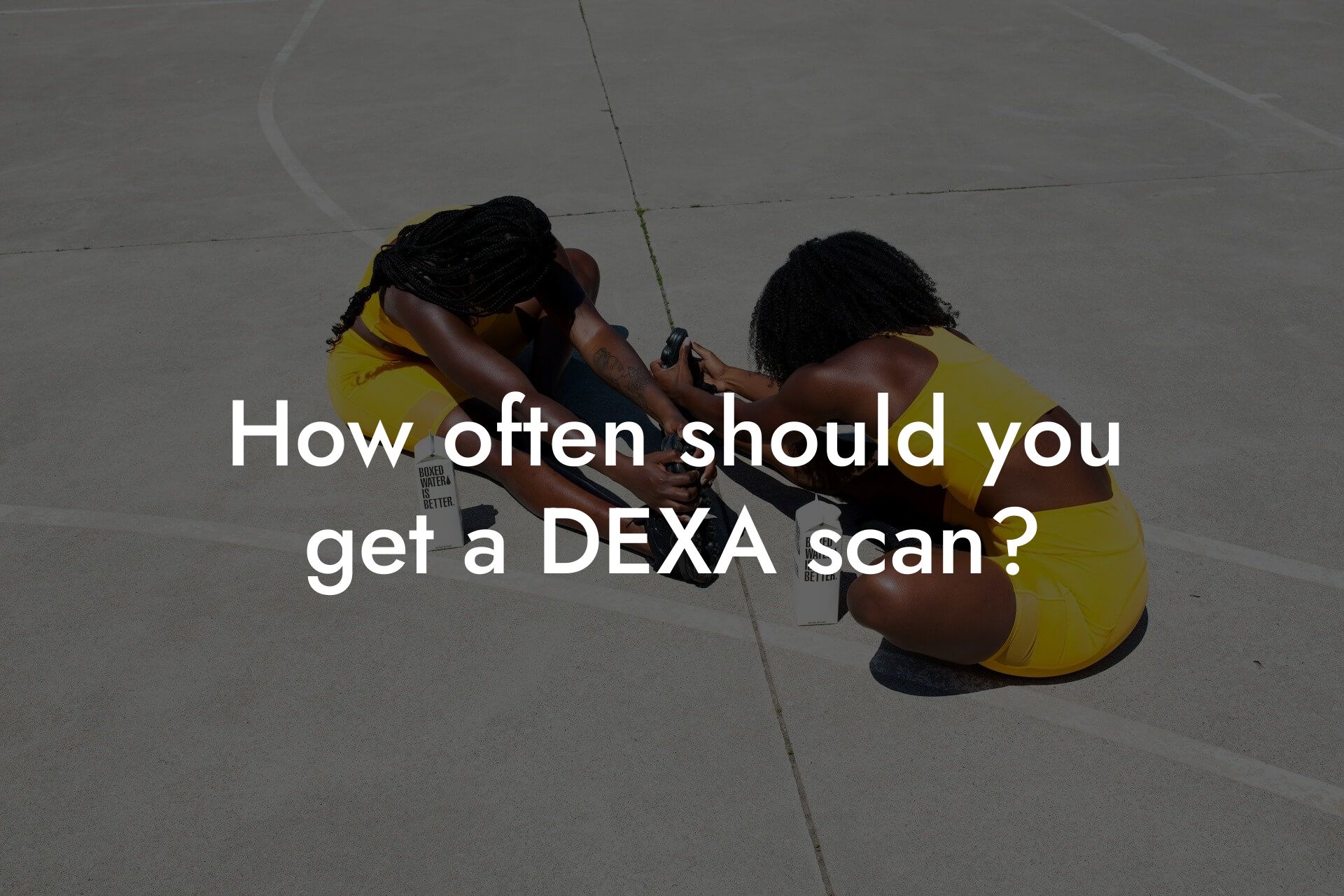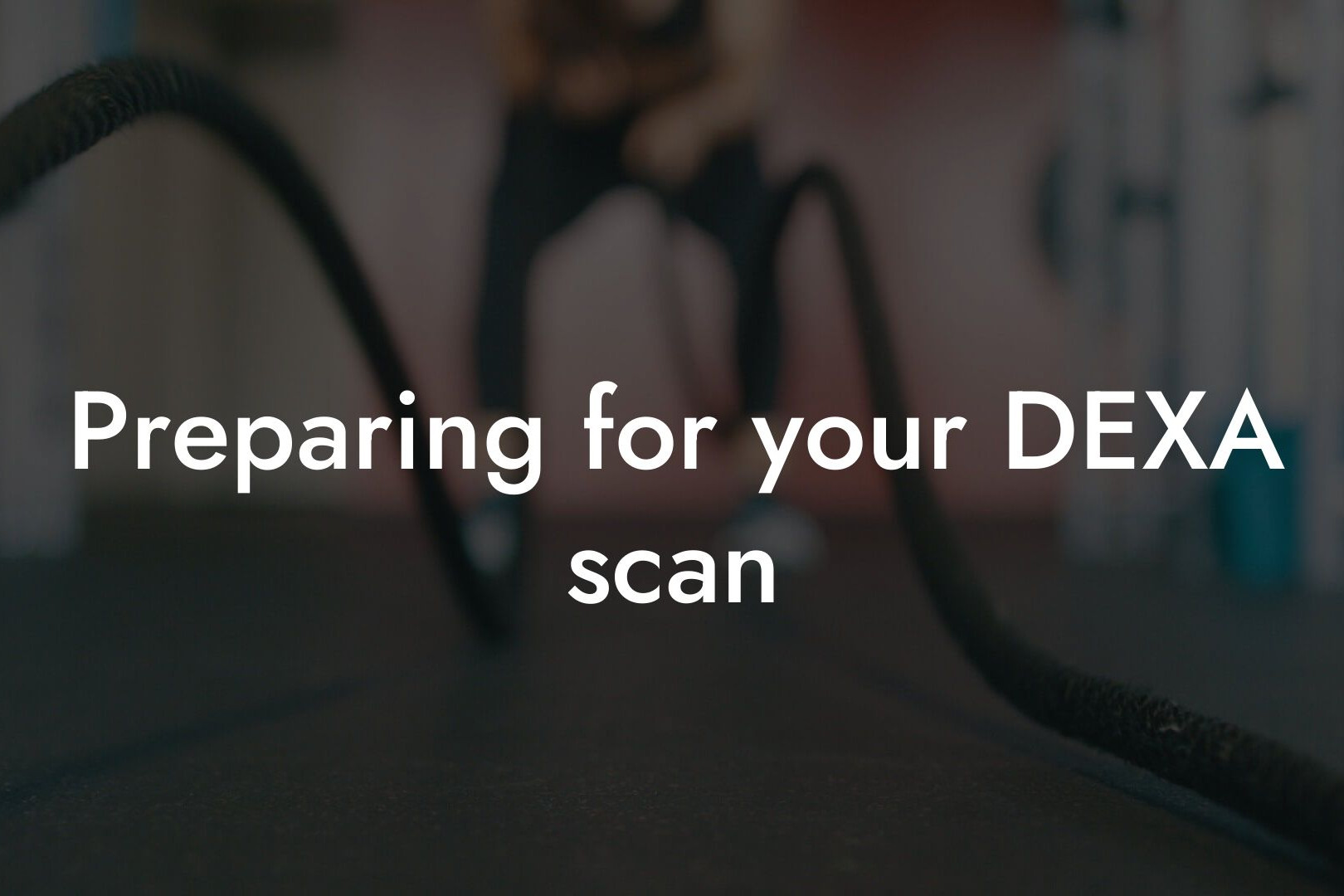As a high-earning professional interested in optimizing your physical appearance, body fat, physique, and bone density, understanding DEXA scan results is crucial for achieving your goals. At Tano Performance Group, we utilize DEXA technology to provide a complete body assessment, empowering you to take your business to the next level. In this article, we'll delve into the intricacies of DEXA scan results, ensuring you have a thorough understanding of your body composition and how to leverage this information for success.
Table of Contents
What is a DEXA Scan?
A DEXA (Dual-Energy X-ray Absorptiometry) scan is a non-invasive, low-radiation medical imaging technique that measures bone density and body composition. This advanced technology uses X-rays to produce detailed images of your body, providing valuable insights into your bone health, muscle mass, fat distribution, and other vital metrics.
Components of a DEXA Scan Report
A typical DEXA scan report consists of several key components, including:
- Bone Density: Measured in grams per square centimeter (g/cm²), this value represents the density of your bones.
- T-Score: A comparison of your bone density to that of a healthy 30-year-old adult of the same gender.
- Z-Score: A comparison of your bone density to that of an average person of the same age, gender, and ethnicity.
- Body Fat Percentage: The percentage of your body composed of fat.
- Lean Mass: The mass of your muscles, organs, and other non-fat tissues.
- Visceral Fat: The amount of fat surrounding your internal organs.
- Android and Gynoid Fat: The distribution of fat in your android (abdominal) and gynoid (hip and thigh) regions.
Interpreting Bone Density Results
Bone density results are categorized into three main groups:
- Normal: A T-Score above -1.0 indicates normal bone density.
- Osteopenia: A T-Score between -1.0 and -2.5 suggests low bone density, placing you at risk for osteoporosis.
- Osteoporosis: A T-Score below -2.5 indicates significantly low bone density, increasing your risk of fractures.
Understanding Body Composition Results
Body composition results provide valuable insights into your overall health and fitness. A healthy body fat percentage varies by age and gender, but generally falls within the following ranges:
- Men: 8-19% body fat
- Women: 21-33% body fat
Additionally, DEXA scan results can identify areas of excess fat, such as visceral fat, which is linked to increased risk of chronic diseases like diabetes and cardiovascular disease.
What Do the Results Mean for My Health and Fitness?
DEXA scan results can have significant implications for your health and fitness. For example:
- Low bone density may indicate a need for calcium and vitamin D supplements, as well as exercise modifications to reduce the risk of osteoporosis.
- High body fat percentage may suggest a need for dietary changes and increased physical activity to reduce the risk of chronic diseases.
- Imbalanced fat distribution may indicate a need for targeted exercises to improve overall body composition.
How to Use DEXA Scan Results to Achieve Your Goals
By understanding your DEXA scan results, you can create a personalized plan to optimize your physical appearance, body fat, physique, and bone density. This may involve:
- Setting realistic goals and tracking progress
- Developing a tailored exercise program, including resistance training and high-intensity interval training (HIIT)
- Implementing a balanced diet, with a focus on nutrient-dense foods and portion control
- Incorporating stress-reducing techniques, such as meditation and yoga, to improve overall well-being
Understanding DEXA scan results is a crucial step in achieving your health and fitness goals. By grasping the intricacies of bone density, body composition, and other vital metrics, you can create a personalized plan to optimize your physical appearance, physique, and overall well-being. At Tano Performance Group, we're committed to providing you with the tools and expertise needed to take your business to the next level. Schedule your DEXA scan today and unlock the secrets to a healthier, more confident you.
Frequently Asked Questions
What is a DEXA scan?
A DEXA (Dual-Energy X-ray Absorptiometry) scan is a non-invasive medical test that measures bone density and body composition. It uses low-level X-rays to produce images of the inside of the body, providing detailed information about bone density, lean mass, and fat mass.
Why do I need a DEXA scan?
A DEXA scan is essential for individuals who want to monitor their bone health, track changes in body composition, or identify potential health risks. It's particularly useful for high-earning professionals like yourself who prioritize their physical appearance and overall well-being.
What can a DEXA scan diagnose?
A DEXA scan can diagnose osteoporosis, osteopenia, and other bone-related disorders. It can also identify muscle imbalances, track changes in body fat percentage, and detect potential health risks associated with excess visceral fat.
How does a DEXA scan work?
During a DEXA scan, you'll lie on a flat table, and a scanner will pass over your body, emitting low-level X-rays. The scanner measures the absorption of these X-rays by different tissues, providing accurate data about bone density and body composition.
Is a DEXA scan safe?
Yes, a DEXA scan is a safe and painless procedure. The radiation exposure is extremely low, equivalent to a few days of natural background radiation. You can resume your normal activities immediately after the scan.
How long does a DEXA scan take?
A DEXA scan typically takes around 10-30 minutes, depending on the type of scan and the area of the body being examined.
What do I need to do to prepare for a DEXA scan?
To prepare for a DEXA scan, avoid eating or drinking anything for at least 2 hours before the scan. Wear loose, comfortable clothing, and remove any metal objects, such as jewelry or glasses. Inform your healthcare provider if you've had a barium study or taken any calcium supplements in the past few days.
What happens during a DEXA scan?
During a DEXA scan, you'll lie on a flat table, and a scanner will pass over your body, taking images of your bones and body composition. You may be asked to hold your breath or remain still for a few seconds during the scan.
How accurate are DEXA scan results?
DEXA scan results are highly accurate, with a precision error of around 1-2%. However, results can be affected by various factors, such as movement during the scan, metal objects on the body, or certain medical conditions.
What do my DEXA scan results mean?
Your DEXA scan results will provide information about your bone density, lean mass, and fat mass. Your healthcare provider will help you interpret the results, identifying areas of concern and recommending appropriate interventions.
What is a T-score?
A T-score is a measure of bone density, comparing your results to those of a healthy 30-year-old adult. A T-score of -1 or higher indicates normal bone density, while a score of -2.5 or lower indicates osteoporosis.
What is a Z-score?
A Z-score is a measure of bone density, comparing your results to those of people of the same age, sex, and ethnicity. A Z-score of 0 indicates average bone density, while a score of +1 or -1 indicates above-average or below-average bone density, respectively.
What is body fat percentage?
Body fat percentage is the proportion of body fat to total body mass. A healthy body fat percentage varies depending on age, sex, and other factors, but generally ranges from 10-30% for men and 15-35% for women.
What is visceral fat?
Visceral fat is a type of fat that accumulates around internal organs, such as the liver, stomach, and intestines. Excess visceral fat is associated with an increased risk of chronic diseases, including type 2 diabetes, cardiovascular disease, and certain types of cancer.
How can I reduce my body fat percentage?
To reduce your body fat percentage, focus on a balanced diet, regular exercise, and stress management. Aim to lose 0.5-1 kg per week for a sustainable weight loss. Consult with a healthcare professional or registered dietitian to create a personalized plan.
How can I improve my bone density?
To improve your bone density, engage in regular weight-bearing exercises, such as walking, running, or weightlifting. Ensure adequate calcium and vitamin D intake through your diet or supplements. Avoid smoking and excessive alcohol consumption, which can negatively impact bone health.
Can I get a DEXA scan if I'm pregnant or breastfeeding?
It's generally not recommended to get a DEXA scan during pregnancy or breastfeeding, as the radiation exposure, although low, may pose a risk to the fetus or baby. However, your healthcare provider may recommend a DEXA scan in certain circumstances, such as a high risk of osteoporosis.
How often should I get a DEXA scan?
The frequency of DEXA scans depends on your individual health needs and risk factors. Generally, a DEXA scan is recommended every 1-2 years for individuals with a high risk of osteoporosis or those taking medications that affect bone density.
Can I get a DEXA scan if I have metal implants?
Yes, you can still get a DEXA scan if you have metal implants, such as hip or knee replacements. However, inform your healthcare provider about the implants, as they may affect the accuracy of the results.
Can I get a DEXA scan if I have a pacemaker or implantable cardioverter-defibrillator (ICD)?
It's generally not recommended to get a DEXA scan if you have a pacemaker or ICD, as the strong magnetic fields may interfere with the device. Consult with your healthcare provider to discuss alternative options.
How much does a DEXA scan cost?
The cost of a DEXA scan varies depending on the location, type of scan, and healthcare provider. On average, a DEXA scan can cost anywhere from $100 to $500. Check with your healthcare provider or insurance provider to determine the exact cost.
Is a DEXA scan covered by insurance?
Insurance coverage for DEXA scans varies depending on the provider and policy. Medicare and many private insurance plans cover DEXA scans for individuals at high risk of osteoporosis or those with a history of fractures. Check with your insurance provider to determine coverage.
Here are some related articles you might love...
- How often should you get a DEXA scan?
- Preparing for your DEXA scan
- Benefits of DEXA scans for professionals
- DEXA scans for athletes vs general population
- What is a DEXA scan?
- How DEXA scans measure body fat
- DEXA scan vs other body composition tests (e.g., BMI, calipers)
- Cost of a DEXA scan: Is it worth it?
- Accuracy of DEXA scans
Zak Faulkner
Zak Faulkner is a leading authority in the realm of physical health and body composition analysis, with over 15 years of experience helping professionals optimise their fitness and well-being. As one the experts behind Tano Performance Group, Zak has dedicated his career to providing in-depth, science-backed insights that empower clients to elevate their physical performance and overall health.
With extensive knowledge of DEXA technology, Zak specializes in delivering comprehensive body assessments that offer precise data on body fat, muscle mass, bone density, and overall physique. His expertise enables individuals to make informed decisions and achieve their fitness goals with accuracy and confidence. Zak’s approach is rooted in a deep understanding of human physiology, combined with a passion for helping clients unlock their full potential through personalised strategies.
Over the years, Zak has earned a reputation for his commitment to excellence, precision, and client-focused service. His guidance is trusted by top professionals who demand the best when it comes to their health. Whether advising on fitness programs, nutritional strategies, or long-term wellness plans, Zak Faulkner’s insights are a valuable resource for anyone serious about taking their health and fitness to the next level.
At Tano Performance Group, Zak continues to lead our Content Team revolutionising how professionals approach their physical health, offering unparalleled expertise that drives real results.




